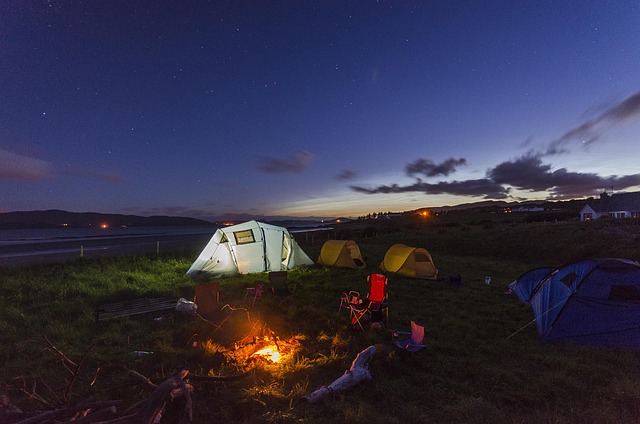England’s approach to camping has evolved through centuries of outdoor tradition, creating a distinct camping culture that differs significantly from practices in other countries. Whether you’re planning your first English camping adventure or curious about how it compares to camping elsewhere, understanding these unique characteristics will enhance your experience.
The Campsite Classification System
One of the most distinctive aspects of English camping is its well-established classification system. Sites range from basic “certified locations” with minimal facilities (often on farmland and limited to five pitches) to luxury “holiday parks” with swimming pools, entertainment, and restaurant facilities.
The Camping and Caravanning Club and the Caravan and Motorhome Club maintain networks of members-only sites with consistent quality standards. This structured approach differs significantly from countries where wild camping is more freely permitted or where standards vary considerably between regions.
The “Facilities Block” Culture
A quintessential feature of English campsites is the centralized “facilities block” or “amenity building.” These structures typically house toilets, showers, dishwashing areas, laundry facilities, and sometimes a small shop or information center. The quality of these facilities is often a major focus of campsite reviews, with English campers placing particular emphasis on cleanliness and hot water reliability.
This contrasts with North American campgrounds, which often feature more distributed facilities, or Scandinavian sites, which might emphasize natural features over built amenities.
Weather Adaptations and Resilience
England’s variable climate has created a camping culture characterized by remarkable weather resilience. Purpose-built awnings, windbreaks, and all-season tents reflect generations of adaptation to unpredictable conditions.
Unlike Mediterranean camping, which is predominantly a summer activity, English camping continues year-round with specially designed equipment. Winter camping is increasingly popular, with heated pods and yurts extending the season. This “regardless of weather” attitude demonstrates a distinctive English determination to enjoy the outdoors despite conditions that might deter campers elsewhere.
The Social Camping Experience
English campsites foster a unique social atmosphere characterized by a balance between friendliness and respect for privacy. The unwritten rule of the “campsite nod” – acknowledging fellow campers without intruding on their space – epitomizes this approach. Campers often share local information and tips but are careful not to disturb others’ enjoyment of tranquility.
Many sites organize communal activities from barbecues to nature walks, particularly during holiday periods, creating temporary communities that many regular campers look forward to rejoining annually.
Distinctive Regulatory Framework
England’s camping regulations reflect broader cultural attitudes toward land access and conservation. Unlike countries with “freedom to roam” principles (like Scotland or Scandinavia), wild camping is technically illegal across most of England without landowner permission. This has created a camping culture centered around designated sites rather than dispersed camping.
Additionally, specific regulations govern campfires, which are prohibited at many sites due to conservation concerns. Where allowed, they’re subject to strict rules about containment and fuel use – a contrast to the more liberal campfire traditions in countries like Canada or Australia.
Seasonal Rituals and Traditions
English camping follows distinctive seasonal patterns, with Bank Holiday weekends (especially May and August) representing peak cultural moments in the camping calendar. These weekends have evolved traditions from special campsite events to expected traffic congestion on popular routes.
Another uniquely English tradition is the “seasonal pitch,” where campers leave their caravan or motorhome at a site for an entire season, visiting it regularly as a semi-permanent weekend retreat – a practice less common in more nomadic camping cultures.
The Equipment Emphasis
English campers are known for their extensive and specialized equipment. From custom-designed kettles that work efficiently on camping stoves to elaborate awning setups with carpets and furniture, the level of specialized gear often surprises international visitors.
The popularity of camping shops like Go Outdoors and Blacks demonstrates this equipment culture, with English campers investing significantly in gear that addresses the specific challenges of local conditions.
Understanding these distinctive features of English camping culture helps visitors appreciate the rich traditions behind the experience, whether they’re pitching a tent in the Lake District or parking a motorhome along the Cornish coast.
